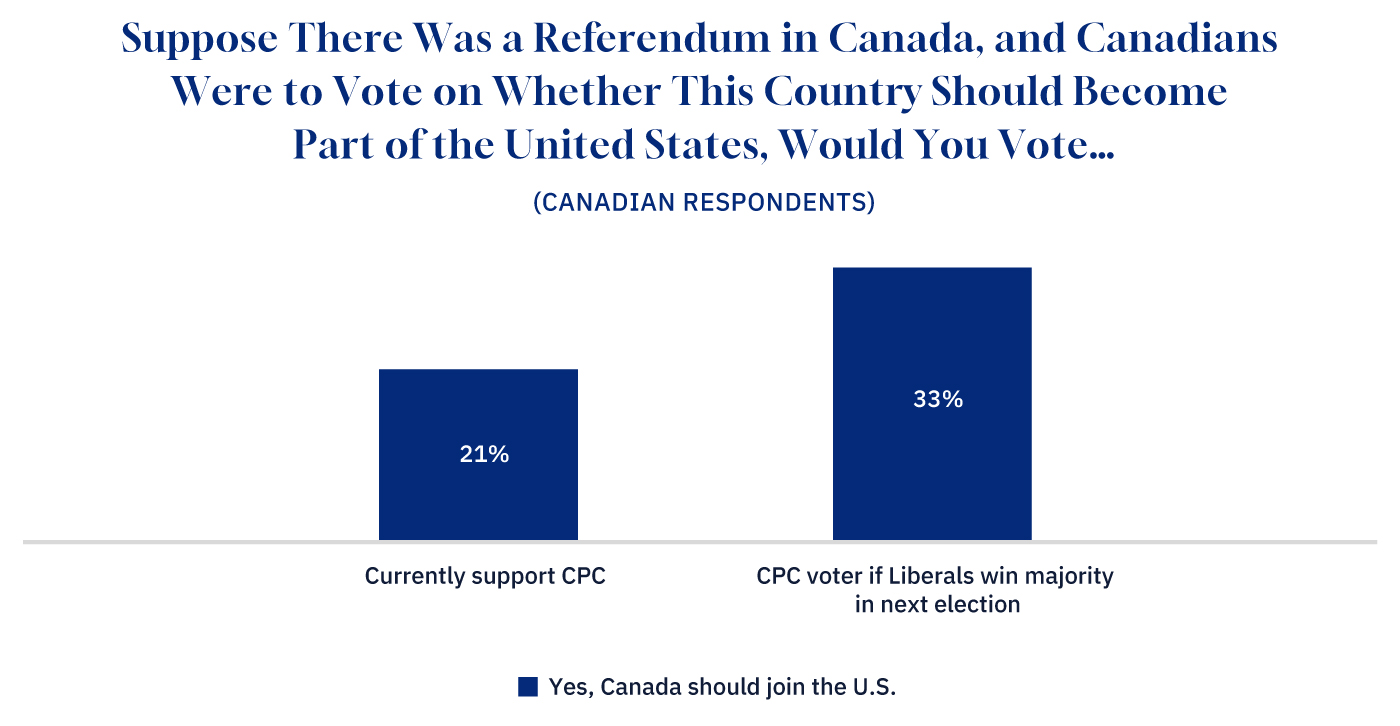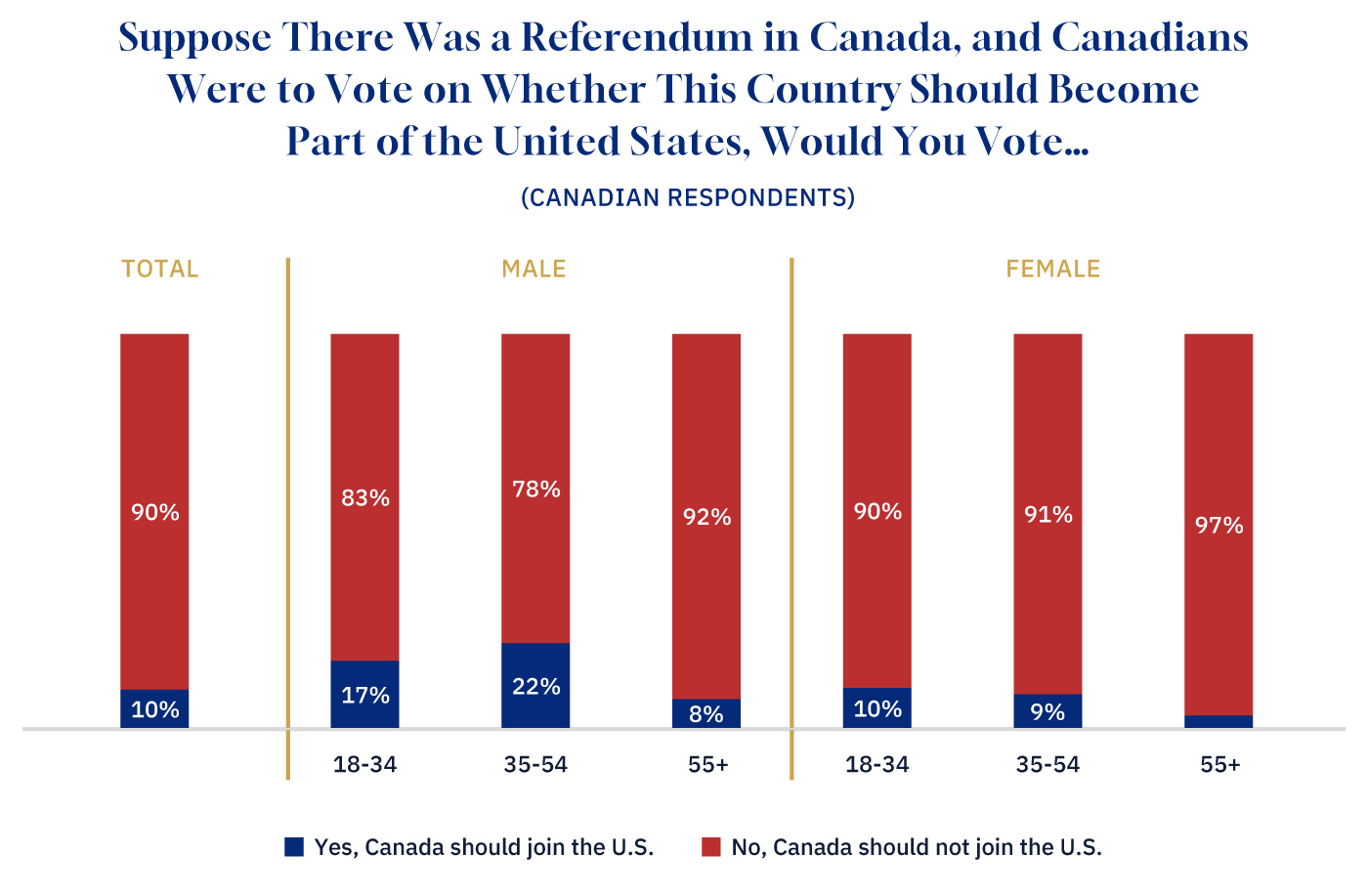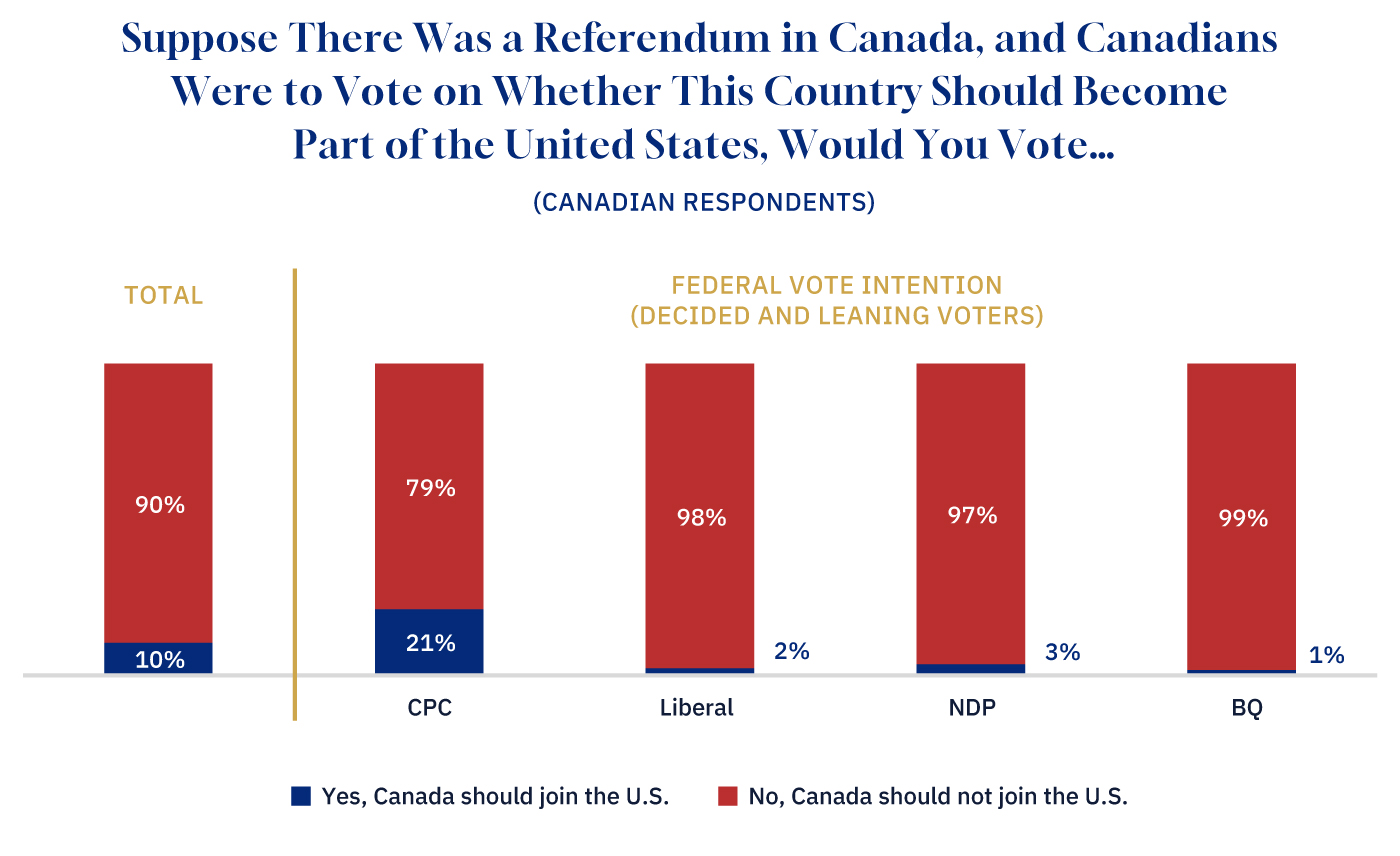In the latest episode of Trump’s Trade War, Rudyard Griffiths, publisher of The Hub, talked to Angus Reid Institute president, Shachi Kurl about a new poll which explored Canadians’ attitudes toward the hypothetical question of whether Canada should join the United States as its “51st state.” While the overwhelming majority of Canadians (90 percent) oppose the idea, the poll revealed intriguing demographic and regional divides, particularly among Conservative voters, men, and residents of Western Canada in Alberta and Saskatchewan.
Here are three key takeaways from the discussion:
- One-fifth of Canadian Conservatives are open to joining the U.S.: While the majority of Conservative voters oppose joining the U.S., a significant minority (21 percent) support the idea. This number rises to 33 percent if Conservative voters are presented with the prospect of Liberals winning a majority in the next election.
- Men in Western Canada are more open to joining the U.S.: Support for joining the U.S. is significantly higher among Canadian men aged 35 to 54, particularly in Alberta and Saskatchewan, where nearly 50 percent of men in this demographic express support. This reflects broader trends of Western alienation and dissatisfaction with federal policies.
- Potential for Western separatism: The poll suggests that the combination of regional alienation, demographic divides, and political dissatisfaction could lead to increased support for Western separatism primarily coming from Alberta and Saskatchewan. However, Kurl cautioned that this sentiment may not translate into actual political action.
Conservative voters and the Liberal majority threat
One of the most striking findings of the poll was the response from Conservative Party of Canada (CPC) voters. Twenty-one percent of current CPC supporters said they would vote to join the U.S. if the option was presented to them in a referendum.
Even more notably, 33 percent of Conservative voters said they would support joining the U.S. if the Liberals won a majority in the next federal election. This suggests a deep sense of disillusionment among some Conservative voters, particularly in the face of another potential Liberal government, after 10 years of Prime Minister Trudeau.
Kurl explained that this sentiment may explain why Conservative leader Pierre Poilievre has been less vocal in opposing the idea of Canada joining the U.S. compared to other political leaders. While the majority of Conservative voters oppose the idea, a significant and influential minority within the party appears open to it. This dynamic puts Poilievre in a difficult position, where he has to “walk a tightrope” in balancing the views of his base while avoiding alienating a key segment of his supporters.
Men and Western alienation
The poll also revealed a notable gender and regional divide. While only 10 percent of Canadians overall support joining the U.S., this number rises to 22 percent among men aged 35 to 54. In Western Canada, particularly in Alberta and Saskatchewan, support for joining the U.S. nearly doubles, with almost 50 percent of men in this demographic expressing support.
This aligns with broader trends of Western alienation, where residents of Alberta and Saskatchewan often feel overlooked by the federal government based in Ontario, particularly on issues like resource development and pipeline infrastructure.
Kurl pointed out that this sentiment is not new but has been simmering for decades, dating back to policies like Pierre Trudeau’s National Energy Program. She also noted that while the idea of joining the U.S. may not be a top priority for these voters, it reflects “the latest iteration” of a broader dissatisfaction with the current political landscape.
The seeds of a Western separatist movement?
Kurl noted that Alberta and Saskatchewan have long been strongholds for conservative sentiment, and the sense of alienation in these provinces is palpable.
“The notion that Alberta and Saskatchewan are being overlooked, particularly around resource development, over the lack of pipeline infrastructure and not getting things built, and not really exploiting economically the resources that those provinces have. [This] has long been [the case],” she said.
Kurl cautioned that while the poll reveals significant discontent, it does not necessarily mean that a separatist movement will grow. The poll highlights the deep divisions within Canada and the challenges facing political leaders as they navigate these tensions.
Generative AI assisted in the production of this story. If you are quoting from or referencing this episode, please refer to the audio to verify.










